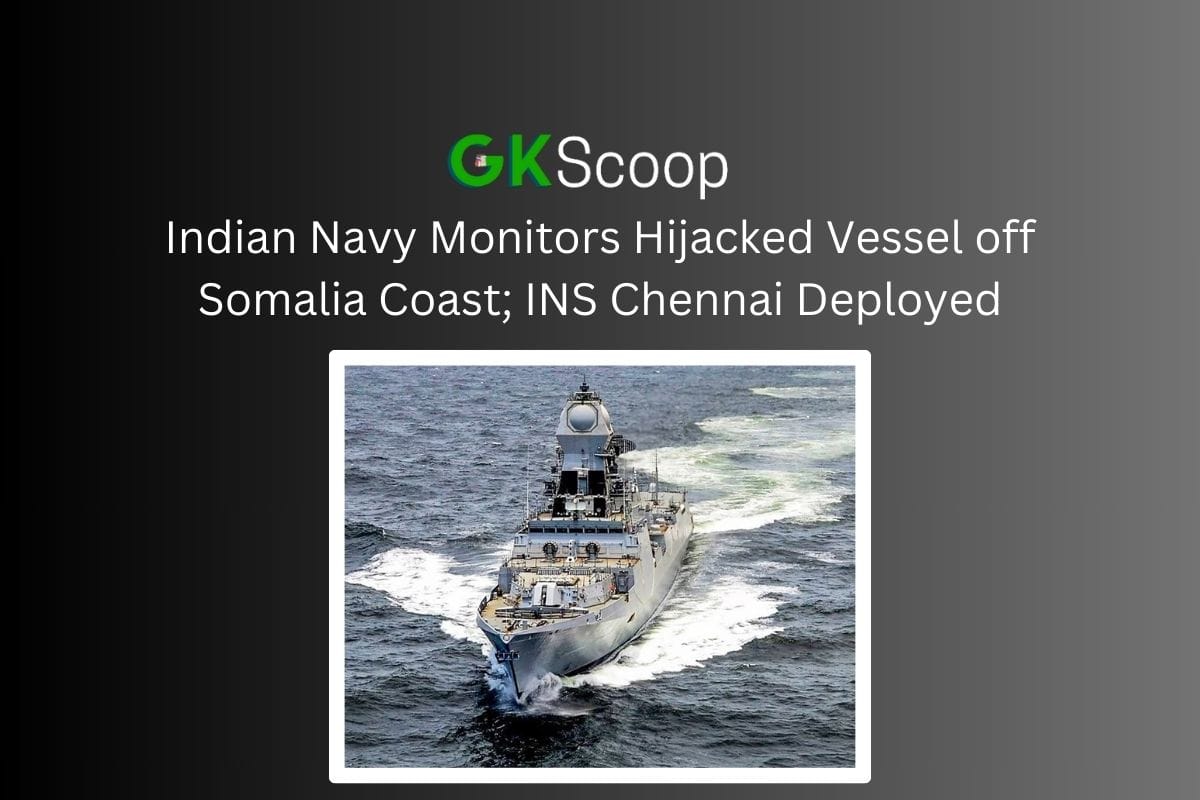
As a part of the latest current affairs that took place, the Indian Navy is closely watching a hijacked merchant ship, MV Lila Norfolk, near Somalia’s coast, with 15 Indian crew members on board. The vessel sent a distress signal on January 4, 2024, reporting armed personnel boarding. The situation is being actively monitored, and INS Chennai is en route to assist.
Where is Somalia?
Somalia is a country located on the eastern coast of Africa, bordered by the Indian Ocean to the east. It has faced challenges related to piracy in its waters over the years.
Why is there a rise in pirate attacks?
The hijacking follows a recent incident in the Arabian Sea, where a Maltese-flagged merchant vessel was seized by unknown attackers. The spike in pirate attacks underscores the persistent threat in these waters. Factors contributing to such incidents include the vast and challenging maritime environment, weak governance in certain regions, and economic incentives for piracy.
Legal Framework Against Piracy
The legal framework against piracy involves a combination of international conventions and agreements designed to address and combat acts of piracy on the high seas. Here are key elements of this legal framework:
United Nations Convention on the Law of the Sea (UNCLOS):
UNCLOS, often referred to as the “constitution for the oceans,” is a comprehensive international treaty that establishes the rights and responsibilities of nations concerning the use of the world’s oceans. It defines piracy under Article 101 and provides the legal basis for the prosecution and suppression of piracy.
High Seas Jurisdiction:
UNCLOS grants coastal states the authority to take action against piracy on the high seas. However, the convention also emphasizes the importance of cooperation and coordination among states and encourages the international community to work collectively to combat piracy.
UN Security Council Resolutions:
The United Nations Security Council (UNSC) has issued resolutions that authorize states and regional organizations to take measures to combat piracy off the coast of Somalia. These resolutions provide a legal basis for naval operations and international cooperation in addressing piracy.
Djibouti Code of Conduct:
The Djibouti Code of Conduct is a regional agreement that aims to enhance maritime security in the western Indian Ocean and the Gulf of Aden. It encourages cooperation among regional states to combat piracy, armed robbery against ships, and other illicit maritime activities.
International Maritime Organization (IMO) Conventions:
IMO has developed several conventions and guidelines related to maritime security, including the International Ship and Port Facility Security (ISPS) Code. These instruments outline security measures for ships and ports to prevent acts of terrorism and piracy.
Prosecution and Extradition Treaties:
Countries often enter into bilateral or multilateral agreements to facilitate the prosecution and extradition of individuals involved in piracy. These treaties aim to ensure that pirates are held accountable for their actions, regardless of the flag under which they operate.
Regional Agreements and Initiatives:
Various regional agreements and initiatives, such as the Regional Cooperation Agreement on Combating Piracy and Armed Robbery against Ships in Asia (ReCAAP) and the European Union Naval Force’s Operation Atalanta, contribute to the legal framework by fostering regional cooperation in addressing piracy.
International Courts and Tribunals:
International courts, including the International Tribunal for the Law of the Sea (ITLOS) and national courts, play a crucial role in prosecuting and adjudicating cases related to piracy. They apply international law to ensure fair and effective legal responses to piracy incidents.
The legal framework against piracy reflects a collective effort by the international community to maintain maritime security, protect shipping lanes, and uphold the rule of law on the high seas.
What steps can international organizations take to curb these attacks?
To address the rising threat of piracy, international organizations can collaborate on several fronts. Strengthening maritime security through coordinated patrols, sharing intelligence, and providing training to local forces can be effective. Additionally, addressing the root causes, such as socio-economic issues and political instability, is crucial. International cooperation in prosecuting and penalizing pirates is essential to deter future attacks. Implementing and enforcing stricter regulations for commercial vessels can also contribute to a safer maritime environment.


Leave a Reply